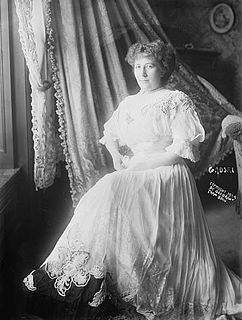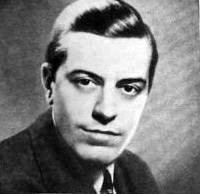Related Research Articles

The New York Philharmonic, officially the Philharmonic-Symphony Society of New York, Inc., globally known as New York Philharmonic Orchestra (NYPO) or New York Philharmonic-Symphony Orchestra, is a symphony orchestra based in New York City. It is one of the leading American orchestras popularly referred to as the "Big Five". The Philharmonic's home is David Geffen Hall, located in New York's Lincoln Center for the Performing Arts.

Bruno Walter was a German-born conductor, pianist and composer. Born in Berlin, he left Germany in 1933 to escape the Third Reich, was naturalised as a French citizen in 1938, and settled in the United States in 1939. He worked closely with Gustav Mahler, whose music he helped to establish in the repertory, held major positions with the Leipzig Gewandhaus Orchestra, New York Philharmonic, Concertgebouw Orchestra, Salzburg Festival, Vienna State Opera, Bavarian State Opera, Staatsoper Unter den Linden and Deutsche Oper Berlin, among others, made recordings of historical and artistic significance, and is widely considered to be one of the great conductors of the 20th century.

Lincoln Center for the Performing Arts is a 16.3-acre (6.6-hectare) complex of buildings in the Lincoln Square neighborhood of Manhattan in New York City. It has thirty indoor and outdoor facilities and is host to 5 million visitors annually. It houses nationally and internationally renowned performing arts organizations including the New York Philharmonic, the Metropolitan Opera, and the New York City Ballet. Juilliard School of Music also became part of the Lincoln Center complex.

The Metropolitan Opera is an American opera company based in New York City, resident at the Metropolitan Opera House at Lincoln Center. The company is operated by the non-profit Metropolitan Opera Association, with Peter Gelb as general manager. As of 2018, the company's current music director is Yannick Nézet-Séguin.

Victor August Herbert was an American composer, cellist and conductor of English and Irish ancestry and German training. Although Herbert enjoyed important careers as a cello soloist and conductor, he is best known for composing many successful operettas that premiered on Broadway from the 1890s to World War I. He was also prominent among the Tin Pan Alley composers and was later a founder of the American Society of Composers, Authors, and Publishers (ASCAP). A prolific composer, Herbert produced two operas, a cantata, 43 operettas, incidental music to 10 plays, 31 compositions for orchestra, nine band compositions, nine cello compositions, five violin compositions with piano or orchestra, 22 piano compositions and numerous songs, choral compositions and orchestrations of works by other composers, among other music.

Frank Heino Damrosch was a German-born American music conductor and educator. In 1905, Damrosch founded the New York Institute of Musical Art, a predecessor of the Juilliard School.

Walter Johannes Damrosch was a German-born American conductor and composer. He is best remembered today as long-time director of the New York Symphony Orchestra and for conducting the world premiere performances of George Gershwin's Piano Concerto in F (1925) and An American in Paris (1928). Damrosch was also instrumental in the founding of Carnegie Hall. He also conducted the first performance of Rachmaninoff's third piano concerto with Rachmaninoff himself as a soloist.

Johanna Emilia Agnes Gadski was a German soprano. She was blessed with a secure, powerful, ringing voice, fine musicianship and an excellent technique. These attributes enabled her to enjoy a highly successful career in New York City and London, performing heavy dramatic roles in the German and Italian repertoires.

Leopold Damrosch was a German American orchestral conductor and composer.

Riccardo Martin was an American tenor.
The Oratorio Society of New York is a not-for-profit membership organization that performs choral music in the oratorio style. Founded in 1873 by conductor Leopold Damrosch and is the third oldest musical organization in New York City. The Society had a prominent role in the building of Carnegie Hall. Throughout its history, it has premiered many new choral works.

David Scull Bispham was an American operatic baritone.

Natalie Bodanya was an American operatic soprano who had an active international career from the late 1920s through the 1940s. She notably sang at the Metropolitan Opera in New York City from 1937 through 1942 and was a performer with the New York City Opera during the company's 1943-1944 inaugural season.

Albert Reiss also Albert Reiß was a German operatic tenor who had a prolific career in Europe and the United States during century. He spent much of his career performing at the Metropolitan Opera where he sang in more than 1,000 performances, including several premieres, between 1901–1919. Excelling in the tenor buffo repertoire, Reiss was particularly associated with the roles of David in Wagner's Die Meistersinger von Nürnberg and Mime in Der Ring des Nibelungen, two roles he sang in numerous houses internationally.

Anton Schott was a German dramatic tenor. He was an army officer before turning to a musical career. In 1871 he began his studies with Agnes Schebest-Strauss, and by the end of the year had already appeared at the Munich Opera. The following year saw him engaged as leading lyric tenor of the Berlin State Opera. In 1880 he made his London debut, in the title role of Rienzi; two years later he went to Italy with Angelo Neumann's company to appear in the works of Richard Wagner. He made his American debut at the Metropolitan Opera on November 17, 1884, singing the title role of Wagner's Tannhäuser; it marked the beginning of Leopold Damrosch's first season of German opera with the company. He remained with the company until 1887, and subsequently was heard in guest performances with European and South American companies. He also gave concerts. Schott died in 1913.

Thomas Llyfnwy Thomas was a Welsh American baritone concert singer who achieved fame for his performances both in concert halls and on television and radio, most notably on The Voice of Firestone, where he was the most frequently featured singer. His concert repertoire included lieder, opera arias, ballads, spirituals and songs from musical theatre and operetta.

Cyrano is an opera in four acts composed by Walter Damrosch to an English language libretto by William James Henderson based on Edmond Rostand's 1897 play, Cyrano de Bergerac. It premiered at the Metropolitan Opera in New York City on February 27, 1913, with Pasquale Amato in the title role and Frances Alda as Roxane.

Elise Kutscherra de Nyss was an operatic soprano.

Merlin is a German-language opera by Karl Goldmark to a libretto by Siegfried Lipiner. It had its premiere at the Wiener Hofoper on November 19, 1886. The Metropolitan Opera gave the American premiere with Lilli Lehmann under Walter Damrosch on January 3, 1887.
John R. Gurney was an American bass-baritone who had an active career as an opera, concert, vaudeville, and musical theatre performer from the 1920s through the 1940s. He was a principal artist at the Metropolitan Opera from 1936 through 1945 where he performed a total of 331 times. On the international stage he performed in operas at the Teatro Colón in Buenos Aires and the Theatro Municipal in Rio de Janeiro. He is best remembered for creating roles in the world premieres of Walter Damrosch's The Man Without a Country and Douglas Moore's The Devil and Daniel Webster. He recorded the role of Don Basilio in Rossini's The Barber of Seville which was release by RCA Camden in 1957. Gurney's son is the well known racecar driver Dan Gurney.
References
- David Ewen, Encyclopedia of the Opera: New Enlarged Edition. New York; Hill and Wang, 1963.